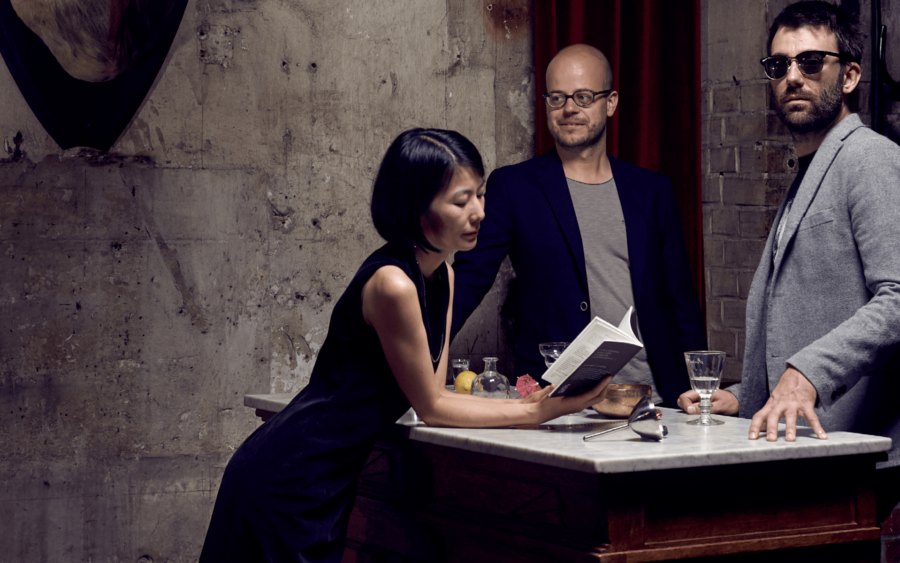Ensemble L’Imaginaire

The music behin our screens
Invaded by screens, our society of communication and image has today gone to conquer our own faces, made omnipresent on social networks, telephones, but also in a more insidious way in search engines and video surveillance systems. The most expressive part of our personality has become a tool for marketing, statistics, and police control.
The two shows conceived by Daniel Zea for the Ensemble L’Imaginaire question this fact, which is as much a reflection of our exacerbated narcissism as it is of a commercial and political desire for global surveillance. In The Love Letters? two performers face each other, in front of their computer. Every movement, every facial gesture is scrutinized, recognized and converted into a control signal.
A blink of the eyes, a grimace, a look away become music, and text. Can emotion cross the border of algorithms? Toxic Box plays a flute, a saxophone and a sampler. The 3D avatars of the three performers facing us are distorted on the screen behind them by a facial recognition software controlled by the sampler. The human expressions try to emerge by creating a choreography of absurd faces. These dances are progressively deconstructed by consumer objects breaking the faces. Who are we really behind these screens?
In Goodbye to the Mermaids, Hibiki Mukai superimposes different layers of sound memory from the two cities where he has resided: Tokyo and Porto. The field recordings dialogue and merge with the flute and saxophone.
Daniel Zea :
Toxic Box, pour flûte, saxophone et sampler contrôlant des animations 3D
The Love Letters? , pour 2 performers, 2 webcams, 2 ordinateurs utilisant des algorithmes de reconnaissance faciale, vidéo et électronique
Hibiki Mukai :
Goodbye to the Mermaids pour flûte, saxophone et claviers, vidéo et électronique, création mondiale